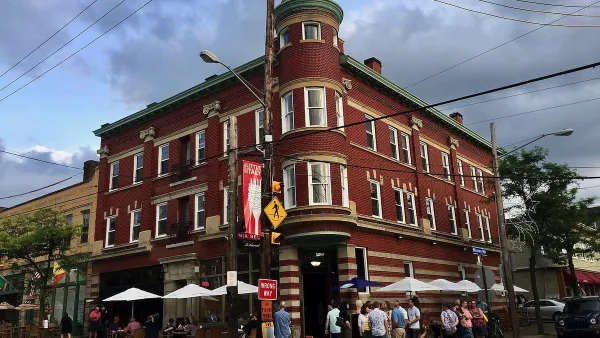In a recent address to the Conference on Economic Opportunity and Inequality, chairwoman of the Federal Reserve Janet Yellen portrayed the stark inequalities growing within American society.
As discussed by John Cassidy in The New Yorker, Janet Yellen's opening remarks to a conference in Boston were entirely devoted to outlining inequalities in the United States. As Yellen stated, "It is no secret that the past few decades of widening inequality can be summed up as significant income and wealth gains for those at the very top and stagnant living standards for the majority. I think it is appropriate to ask whether this trend is compatible with values rooted in our nation’s history, among them the high value Americans have traditionally placed on equality of opportunity."
While the Great Recession had a sharp impact on top incomes as a result of the declining stock market, those inequalities since then have resumed widening, with 2013 inequality levels at nearly those of peaking pre-recession times. As Cassidy writes, "Turning to wealth, which includes financial assets, real estate, and durable goods, such as cars, Yellen noted that the pattern was the same—except the increase in inequality had been even more stark. In 1989, the richest five per cent owned fifty-four per cent of over-all wealth. By 2010, that figure had risen to sixty-one per cent. And by 2013, it had reached sixty-three per cent."
In addition to touching on the net worth (debts, and mortgage debts subtracted from the summed value of all assets a family owns) of top Americans, Yellen discussed how "[i]n 2013, the average net worth of the sixty-two million households in the bottom half of the distribution was eleven thousand dollars."
Yellen went on to describe how the entrepreneurial spirit of America leads to people founding their own businesses, and moving up the income distribution, is also in trouble, "it appears that it has become harder to start and build businesses... The pace of new business creation has gradually declined over the past couple of decades... [and] may well threaten what I believe likely has been a significant source of economic opportunity for many families below the very top in income and wealth."
FULL STORY: Rising Inequality: Janet Yellen Tells It Like It Is

Analysis: Cybertruck Fatality Rate Far Exceeds That of Ford Pinto
The Tesla Cybertruck was recalled seven times last year.

National Parks Layoffs Will Cause Communities to Lose Billions
Thousands of essential park workers were laid off this week, just before the busy spring break season.

Retro-silient?: America’s First “Eco-burb,” The Woodlands Turns 50
A master-planned community north of Houston offers lessons on green infrastructure and resilient design, but falls short of its founder’s lofty affordability and walkability goals.

Test News Post 1
This is a summary

Analysis: Cybertruck Fatality Rate Far Exceeds That of Ford Pinto
The Tesla Cybertruck was recalled seven times last year.

Test News Headline 46
Test for the image on the front page.
Urban Design for Planners 1: Software Tools
This six-course series explores essential urban design concepts using open source software and equips planners with the tools they need to participate fully in the urban design process.
Planning for Universal Design
Learn the tools for implementing Universal Design in planning regulations.
EMC Planning Group, Inc.
Planetizen
Planetizen
Mpact (formerly Rail~Volution)
Great Falls Development Authority, Inc.
HUDs Office of Policy Development and Research
NYU Wagner Graduate School of Public Service




























